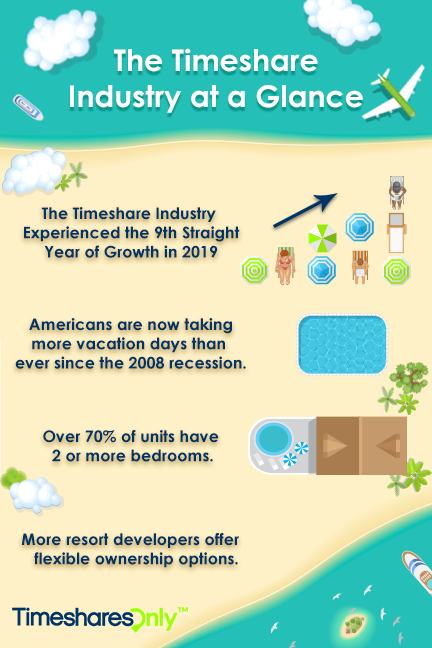If the vacationing potential customers decline to take the tour, they might discover the cost of their lodgings considerably increased, maybe be directed to leave the home, and all incentives withdrawn or voided. The prospective purchasers (thus described as potential customers) are seated in a hospitality room (a term designated by the land sales industry in the 1960s) with lots of tables and chairs to accommodate families. The potential customers are appointed a tour guide. This person is typically a licensed property agent, however not in all cases. The actual expense of the timeshare can just be estimated by a licensed property agent in the United States, unless the purchase is a right to use rather than an actual realty deal by means of ownership.
After a warm-up duration and some coffee or snack, there will be a podium speaker welcoming the potential customers to the resort, followed by a film created to impress them with exotic places they might check out as timeshare owners. The potential customers will then be invited to take a trip of the home. Depending on the resort's readily available inventory, the tour will consist of an accommodation that the tour Learn more guide or agent feels will best fit the prospect's household's requirements. After the tour and subsequent return to the hospitality room for the spoken sales presentation, the prospects are given a quick history of timeshare and how it relates to the trip market today.
The potential customers will be asked to inform the tourist guide the locations they would like to go to if they were timeshare owners. The rest of the discussion will be created around the responses the prospective purchasers offer to that concern. If the guide is certified, the prospect will be priced estimate the retail price of the specific unit that best appeared to fit the potential purchaser's requirements. If the tourist guide is not a licensed representative, a licensed agent will now action in to provide the rate. If the possibility responds with "no", or "I would like to think of it", the possibility will then be offered a new incentive to purchase.
If again, the reply is "no", or "I want to think of it", the sales agent will ask the prospect to please speak to among the managers before the possibility leaves. It is at this minute that the possibility recognizes that the trip has actually just started. A sales supervisor, assistant supervisor or task director will now be contacted us to the table. This treatment is called: "T.O.", or getting the turn over male to discover a reward generally in the form of a smaller cheaper unit or a sell unit from another owner. This technique is frequently utilized as a sales tactic, due to the fact that the resort is not interested in reselling currently deeded property.

If one reward doesn't move a prospect to purchase, another will follow quickly, till the prospect has actually either bought, convinced the typically very respectful sales team that no implies no, or has actually gotten up from the table and left the building. Timeshare sales are often high-pressure and fast-moving affairs. Some individuals get caught up in the excitement of the sales discussion and sign a contract, just to recognize later on that they may have made an error. U.S. Federal Trade Commission mandates a "cool down period" that enables individuals to cancel some kinds of purchases without penalty within 3 days. In addition, almost all U.S.
High Point World Resort Timeshare How Much Can Be Fun For Anyone
In Florida, a brand-new timeshare owner can cancel the purchase within 10 days. The law differs by jurisdiction as to whether out-of-state buyers go through the rescission duration of their state of residence, or the rescission period of the state where the timeshare purchase was made (e. what do i need to know about renting out my timeshare?. g., in Florida, the 10-day rescission period applies to all purchasers; therefore, a Texas purchaser who would just have 5 days in Texas, has the whole 10-day duration allocated by Florida Statutes). Another common practice is to have the potential buyer indication a "cancellation waiver", utilizing it as an excuse to decrease the cost of the timeshare in exchange for the buyer waiving cancellation rights (or paying a charge, such as losing 10% of the purchase rate, if the sale is cancelled).
If a current timeshare purchaser wants to rescind or cancel the timeshare agreement, the intent to cancel should be made within the designated time period in writing or in individual; a phone call will not be adequate. Over the last few years, a timeshare cancellation market has actually formed by companies who provide one easy service: timeshare cancellations. Nevertheless, a few of these business are presumed of being deceitful. It is more than most likely that a brand-new timeshare owner might have acquired the same item from an existing owner on the timeshare resale market for dramatically less than what the buyer paid from the resort designer, merely by doing a computer system search.

The brand-new purchaser typically pays only minimum property transfer fees and concurs to take over the upkeep fees, because the existing owner can't discover a buyer for his/her timeshare without paying a resale company thousands of dollars to absorb it for resale. The reason for this anomaly is that the lion's share of the expense of a brand-new timeshare are sales commissions and marketing overhead, and can not be retrieved by the timeshare owner. Another factor a brand-new owner may desire to cancel is buyer's remorse following the subsidence of excitement produced by a sales presentation. He might have realized that he doubts just what has been bought and how it http://www.timeshareanswers.org/get-assistance-lessons-from-wesley-financial-lawsuits-chuck-mcdowell-timeshare-fraud-and-more/ works, or might have realized the limitless period of a commitment to pay ownership upkeep charges, or may have observed that he knows too little about the timeshare sales business, due to insufficient time during the sales process (what happens when timeshare mortgage is complete).
Also called Universal Lease Programs (ULPs), timeshares are thought about to be securities under the law. Numerous timeshare owners complain about the yearly maintenance fee (which includes home taxes) being too high. Timeshare developers contend that rates compared to remaining at hotels in the long term is predicted to be lower to the timeshare owner. Nevertheless, a hotel visitor does not have a monthly vacation mortgage payment, upfront expense, repaired schedule, maintenance fees, and pre-programmed holiday locations. Lots of owners also complain that the increasing cost of timeshares and accompanying maintenance and exchange fees are increasing faster than hotel rates in the exact same areas.
" The reduced rate I quoted you is just good if you buy today", is the industry standard's pitch to close the sale on the first see to the resort. what are the difference types of timeshare programs available for purchase?. Many have actually left a timeshare tour experiencing being tired by the barrage of salespeople they had to handle prior to they lastly left the trip. The term "TO", or "turn over" guy, was coined in the land market, and quickly evolved to the timeshare market. When the original tour guide or salesman gives the potential buyer the pitch and rate, the "TO" is sent out in to drop the rate and protect the down payment.